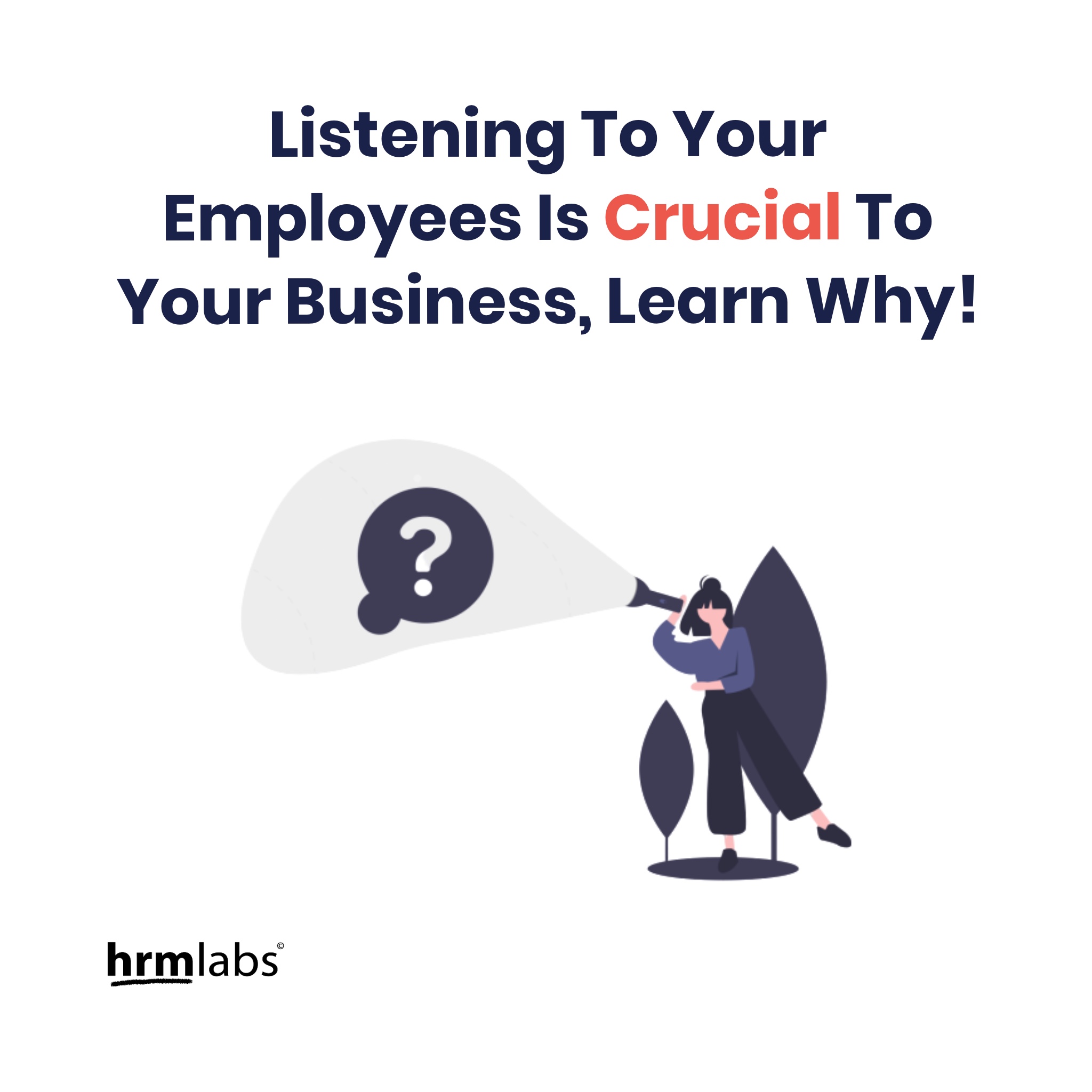In a recent poll, 38% of employees felt that when leaders dismiss their ideas without entertaining them, they tend to lack initiative. An active and committed employee base, is one of the benefits of listening to your employees.
Management, HR and department leaders who are willing to tap into their own creativity and imitative, have sparked greater efforts from the workforce. Active listening starts within your ranks, and when nurtured, will branch out to your employees.
Here are why you should listening to your employees!
Employee Engagement
If you don’t listen to your staff, they may stop putting forward their ideas and lose motivation. Many companies encourage their employee’s opinions through contests, rewards, and bonus structures. When employee ideas are heard and encouraged, the company can stand to positively impact the bottom-line, whilst engaging the employee simultaneously.
Employees who feel listened to feel more connected with the employer and in turn feel more engaged and motivated to do the best work for the organization. In addition to having tools in place that can help ensure that you are listening to your employees, having regular open forums such as All-Hands Friday lunches, Quarterly all-hands on company goals etc. can inculcate a culture of listening and open communication within the company.
Read more : 9 Actionable Employee Engagement That Actually Work
Better Knowledge Sharing
A collaborative workplace environment can lead to greater idea sharing and help create motivational success stories. If people feel comfortable sharing their thoughts with leaders, knowing they won’t be shouted down or spoken over, you’ll have a better chance of hearing where the business needs to go.
Instead of always finding ideas, suggestions and feedback from top-down processes, the power of crowd sourcing can be particularly effective in understanding what is truly important to employees. With the right tools, letting employees themselves ask and engage can bring issues that you need to be solving to the forefront. CEO’s, Executive leadership, and HR directors can use this data in real-time to determine trending ideas, conversations, and feedback. This allows them to take immediate action, and enables a proactive, rather than reactive, approach.
Happier and Safer Workplace
By listening to verbal and non-verbal cues you can spot issues such as workplace bullying, discrimination and unsafe work practices. Happy employees are also more productive employees. The happier your employees, the more top talent will be attracted to your organization. There’s really no downside to maintaining a top-notch culture at your workplace.
Develop Trust
Trust is the secret ingredient of successful teams. Google studied its high performing teams to evaluate their effectiveness and discovered it boils down to one factor: psychological safety. In other words, building trust helped team members feel safer to speak up, take risks and be vulnerable. As a result, the team was less likely to fail.
Listening is essential to building trust. If one member of a team doesn’t listen to instructions, an entire project might fail. To develop trust, pay attention to verbal instructions and deadlines. Listen for statements a coworker might make regarding his own strengths and weaknesses as it relates to a project. So that you can collaborate in a way that maximizes each other’s strengths.
In conclusion, no matter what your goals are, listening is a must-have tool for today’s leaders. Scheduling regular meetings and making yourself available to sit down and hear from employees takes time, but it’s worth it. Listening allows you to learn more about your company, improve your reputation, and increase overall productivity. You’ll also have the chance to hear fresh perspectives and new ideas from people you might not have taken the time to talk with otherwise.
Listening can even make you a better leader, says Forbes. When you really hear what your employees are saying, they’ll repay you with respect and loyalty – two essential components of effective leadership. This is no ordinary investment because no matter which way you look at it, listening is a win.



